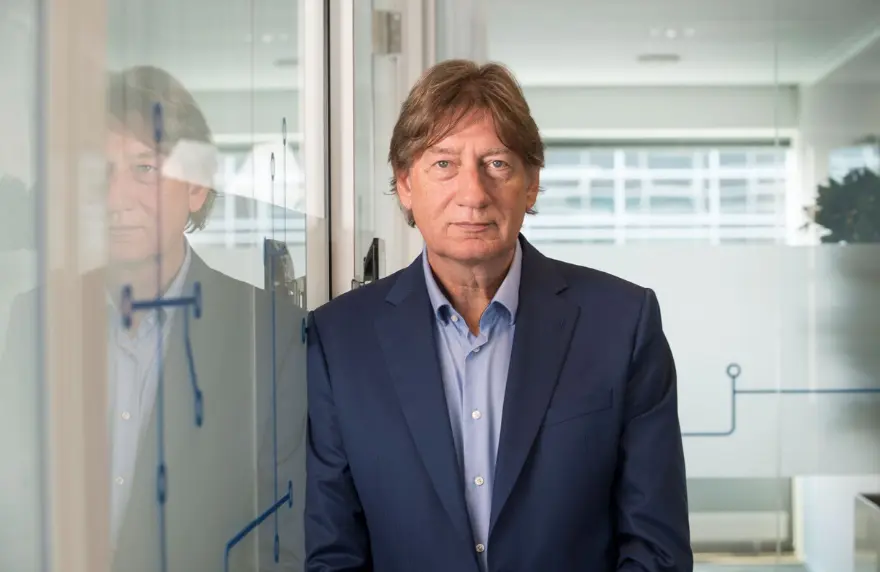Tien jaar na het Nederlandse ‘nee’ tegen de Europese grondwet zwelt in Europa, mede door de verkiezingszege van David Cameron, de discussie aan over de vraag of landen lid moeten blijven van de EU. In Nederland eisen eurosceptici inmiddels een parlementaire enquête naar de invoering van de euro.
Voorstanders van een vertrek uit de EU stellen dat ze wel lid willen blijven van de vrijhandelszone, maar niet gebukt willen gaan onder een Brussel dat een einde aan de soevereine staten wil maken. De burger moet kunnen stemmen over de opheffing van zijn land, heet het.
Ze stellen het vertrek uit de EU voor als iets dat op een achternamiddag geregeld kan worden. Maar uittreden uit de EU eist heronderhandeling over de tienduizenden regels die voor een gelijk speelveld voor alle lidstaten zorgen. Precies om die redenen zijn de onderhandelingen over het Trans-Atlantische Handels- en Investeringspact (TTIP) tussen de EU en de VS ook zo lastig.
Die regels zijn nodig. Wie een grasmaaier voor alle EU-landen wil produceren, is gebaat bij gezamenlijke geluidsnormen. Voor veel ondernemers is het daarom vanzelfsprekend dat Brussel zich met hun producten bemoeit, terwijl eurosceptici dat als inbreuk op de soevereiniteit zien.
Onaangenaam gevoel
Soevereiniteit wordt inderdaad ondermijnd door de EU, maar de EU-samenwerking is vooral een reactie op de mondialisering die al eeuwen aan de gang is en nu met de opkomst van landen als China in een nieuwe fase komt.
Degenen die een onaangenaam gevoel krijgen van al die veranderingen en vrezen dat banen verloren gaan en dat de immigratie uit de hand loopt, menen dat terugwinnen van soevereiniteit de redding van het land is. Zij zijn hooguit bereid tot economische samenwerking in Europa en niet tot politieke samenwerking als antwoord op de toenemende macht van opkomende landen als China. Daarom zijn ze ook tegen TTIP.
Het klinkt paradoxaal, maar wie in de nieuwe wereld zijn onafhankelijkheid zo veel mogelijk wil bewaren, moet internationaal met gelijkgestemden samenwerken. Zo niet, dan wordt je uiteindelijk geknecht door Moskou of Peking. Persoonlijk word ik dan liever ‘geknecht’ door Brussel. De voorstanders van EU en TTIP pleiten daarom voor blijvende politieke samenwerking en meer samenwerking op veiligheid- en defensiegebied.
Rechts is afkeer van Europa
De discussie over de EU duidt dus op een fundamenteel politiek probleem. Links en rechts bestaan niet meer. Vroeger was links voor internationalisering, de EU en sociaal beleid. Nu zijn de PVV en de SP rechts in hun afkeer van Europa en links in hun sociaal-economische beleid.
Tegenwoordig staan nieuwe nationalisten tegenover internationalisten. Nieuwe nationalisten zien in de mondialisering een bedreiging, zijn individualistisch, hedonistisch, pragmatisch, afkerig van de gevestigde politiek en de elite, en protectionistisch.
De internationalisten zien de mondialisering als gegeven en menen dat welvaart en veiligheid afhankelijk zijn van internationale economische en politieke samenwerking, ook om gezamenlijke westerse idealen te kunnen beschermen.
Welke stroming uiteindelijk dominant wordt, bepaalt of de Europese landen zich uiteindelijk kunnen handhaven in de nieuwe wereld. De geschiedenis bewijst dat protectionisme in elk geval de dood in de pot is.
De column van Rob de Wijk verschijnt wekelijks in Trouw.
Photo credit: European Parliament via Foter.com / CC BY-NC-ND


